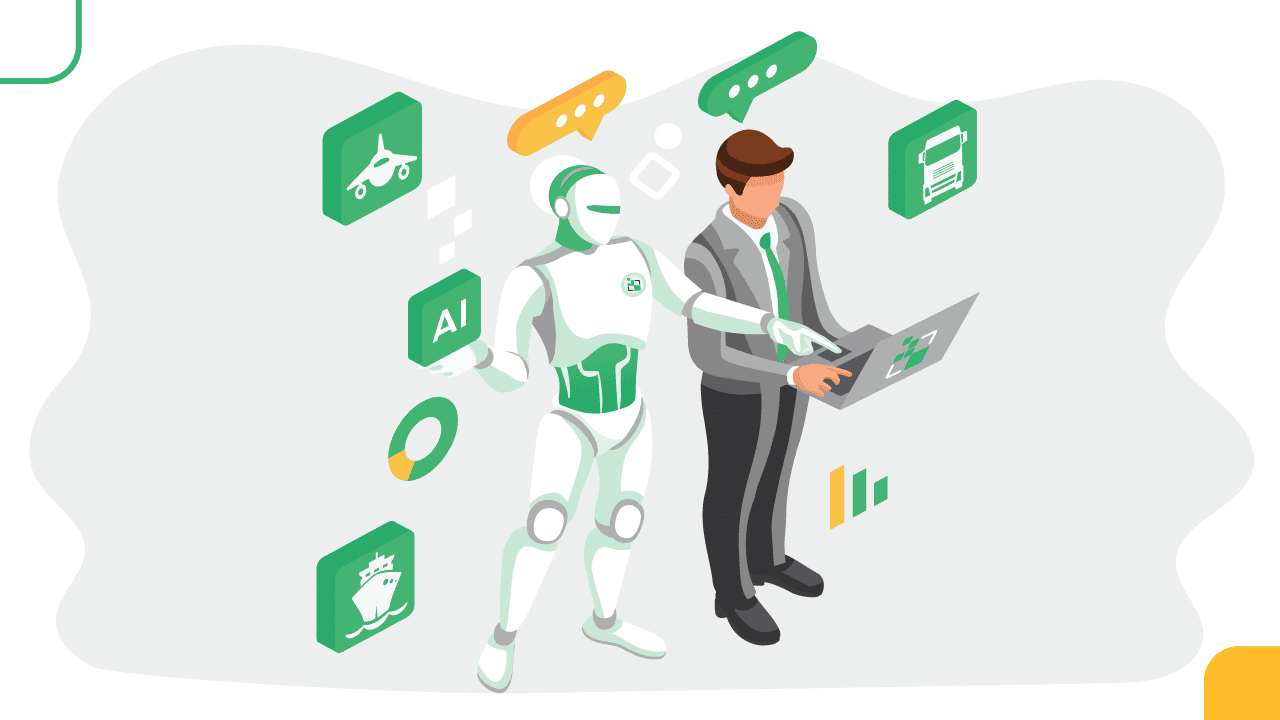In today’s fast-paced digital landscape, businesses are under immense pressure to bridge the gap between strategic planning and actual results. Fortunately, AI for plan to results is changing the game. Solutions like ZBrain’s AI-driven planning tools are empowering organizations to move from theoretical roadmaps to actionable outcomes, faster and more efficiently than ever before.
Additionally, tools like ZBrain XPLR offer deep exploratory capabilities, enabling businesses to identify patterns and predictions that were previously impossible to detect manually. These technologies are not just trends—they are the backbone of a smarter, more responsive business model.
The Growing Importance of AI in Business Strategy
The role of artificial intelligence in business has evolved far beyond automation. Today, AI serves as a strategic partner in the planning process, offering predictive analytics, real-time adjustments, and scalable insights that drive better decisions.
Companies no longer have the luxury of time-consuming trial-and-error cycles. AI shortens this gap by:
- Providing data-backed insights at the planning stage
- Automating the execution of routine tasks
- Continuously learning from results to optimize future strategies
The integration of AI into planning processes ensures that strategy is not only aligned with current realities but also anticipates future trends.
Turning Data Into Decisions
One of the most powerful advantages of using AI in planning is its ability to process and interpret massive amounts of data quickly. Whether it’s customer behavior, market shifts, or internal performance metrics, AI can digest complex datasets and transform them into clear, actionable insights.
For example, AI can help identify:
- Underperforming segments within a campaign
- Predictive outcomes based on historical performance
- Real-time changes in consumer sentiment
This transition from raw data to actionable knowledge allows businesses to act with precision rather than speculation.
Predictive Planning: A Competitive Edge
Predictive analytics is becoming a cornerstone of modern planning. By analyzing past data and recognizing patterns, AI systems can forecast future events with remarkable accuracy. This foresight enables businesses to prepare for market changes, manage resources efficiently, and avoid potential risks.
Some key benefits of predictive planning include:
- Reduced uncertainty in decision-making
- Enhanced budgeting accuracy
- Improved resource allocation
Companies that embrace predictive capabilities are not only staying ahead of the curve—they’re defining it.
Real-Time Execution and Monitoring
In traditional planning models, there’s often a significant delay between strategy formulation and execution. AI disrupts this lag by enabling real-time strategy updates based on live data inputs.
This dynamic planning environment allows companies to:
- React to market changes instantly
- Reallocate resources on the fly
- Optimize campaigns while they’re still active
With this level of agility, businesses can pivot faster, experiment more, and ultimately deliver better results.
Integrating AI with Human Expertise
Despite AI’s growing capabilities, human judgment remains essential—especially when it comes to context, creativity, and ethical considerations. The most effective planning systems use AI to augment human decision-making rather than replace it.
Here’s how the synergy plays out:
- AI handles the data-heavy lifting
- Humans interpret results in context
- Together, they craft and execute smarter strategies
This collaborative approach ensures that decisions are both data-informed and strategically aligned with company values and goals.
Industry Applications: From Retail to Healthcare
AI-driven planning isn’t confined to a single sector. Its flexibility allows for customization across industries, making it a universal asset for organizations seeking efficiency and precision.
Retail: Personalized marketing, inventory optimization, demand forecasting
Healthcare: Treatment planning, patient flow optimization, predictive diagnostics
Manufacturing: Supply chain management, predictive maintenance, quality control
Finance: Risk assessment, fraud detection, investment forecasting
In each industry, AI not only enhances planning—it redefines what’s possible.
Challenges and Considerations
While the benefits are significant, implementing AI in planning is not without its challenges. Organizations must navigate issues such as:
- Data quality and availability
- Change management and staff training
- Ensuring ethical use of AI
Moreover, AI solutions must be transparent and interpretable. Decision-makers need to understand the “why” behind AI recommendations to fully trust and leverage them.
ZBrain: A Leader in Intelligent Planning Solutions
When it comes to operationalizing AI from plan to results, ZBrain stands out as a forward-thinking partner. Their AI for plan to results platform empowers organizations to seamlessly connect strategy and execution with data-driven precision.
Furthermore, ZBrain XPLR supports deeper analytical exploration, helping teams unlock hidden insights and make smarter strategic bets. Together, these tools represent a new era of AI-empowered planning where outcomes are no longer left to chance.
Future Outlook: What’s Next for AI in Strategic Planning?
As AI technology continues to evolve, its role in business planning will only expand. We can expect:
- More intuitive user interfaces for non-technical users
- Greater integration with IoT and edge computing
- More sophisticated ethical frameworks and governance models
In the future, successful planning will not just be about reacting to data—it will be about co-creating outcomes with intelligent systems that understand business goals as well as the humans who set them.
Final Thoughts
The shift from static strategy to dynamic execution is already underway, and AI is the driving force behind it. With tools like ZBrain’s AI for planning and the advanced capabilities of ZBrain XPLR, companies have the resources they need to plan smarter, move faster, and deliver consistently better outcomes.
The future belongs to those who can transform plans into results—and with AI as a partner, that future is closer than ever.

